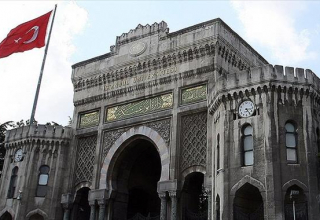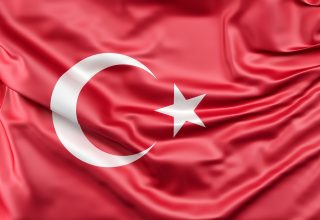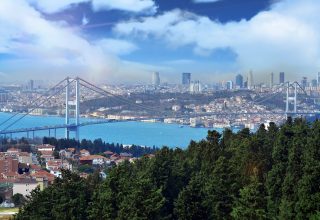Fact File
o Official name – Republic of Turkey
o Population – 76, 805, 524*
o Languages – Turkish (official), Kurdish,
Arabic, Armenian, Greek
o Currency – Turkish Lira (TRL)
o Capital City – Ankara
o GDP – purchasing power parity $906.5
billion*
o GDP Per Capita – purchasing power
parity $12,000*
Overview
Turkey is a vibrant amalgamation of two unique cultures, reflecting a diverse collection of ideas,
beliefs and values. Crossing both European and Middle Eastern boundaries, Turkish society is
patriotic and proud of its ancestry and achievements. The rapid modernization of the country,
combined with its traditional values, makes Turkey a fascinating market for foreign businesses but
requires an understanding of its cultural design in order to secure your future business success.
Turkish Culture – Key Concepts and Values
Family – The most essential social unit in Turkish culture is the family. A Turk’s personal life is
dependent on and revolves around family, friends and other community groups. These, in turn,
command one’s opinions and decisions. Family loyalty is a vital aspect of Turkish society and one
that has a major impact on Turkish business practices. Many businesses in Turkey are still family-owned and run and the concept of family connections and influence is apparent during business
exchanges in Turkey.
Polychronic time – Turks tend to juggle several activities and issues at the same time and continue
multiple conversations simultaneously. Thus, in a Turkish business environment, it is not
uncommon for phone calls to be taken during scheduled meeting and for people to enter the
meeting room without invitation. Business meetings tend not to follow a linear system and are
rarely structured. As a result, you should be prepared to exercise patience when conducting
business in Turkey.
Islam – Modern day Turkey is a secular state; however the philosophy and ideology of Islam still
remains a prevalent feature of Turkish culture. Although not so prominent in the more Western-influenced areas of the country, the Islamic culture of Turkey continues to influence cultural life,
beliefs, language, teaching, social relationships and democracy. It infiltrates all levels of society,
providing guidance, values, and rules for personal life, public behavior and business etiquette.
The Turkish Economy
Founded in 1923 after the collapse of the Ottoman Empire, the Turkish Republic has witnessed
periods of instability and recurrent democratic power. Today, Turkey is an associate member of the
European Union, and is undergoing many changes in order to strengthen its democracy and
integrate its economy into a more global field. Turkey’s economy is a dynamic blend of both
modern and traditional industries, with an increasingly strong private sector. Turkey’s
geographical position offers an excellent base for economic activities throughout the region and is
emerging as a powerful cultural and political focal point. Such an increasingly attractive business
environment presents many advantages and potential opportunities to businesses wishing to
expand in this area of the world.
Source: http://www.communicaid.com/access/pdf/library/culture/doing-business-in/Doing%20Business%20in%20Turkey.pdf













